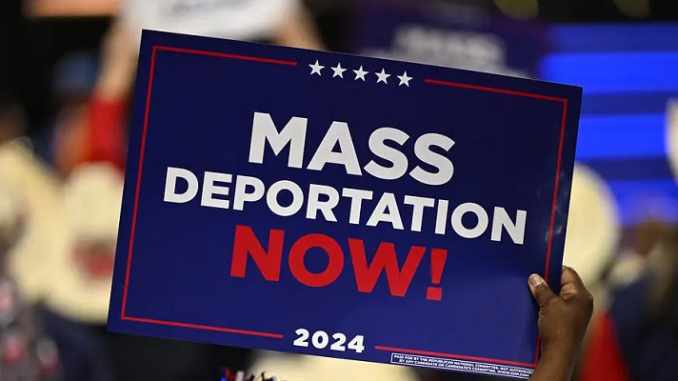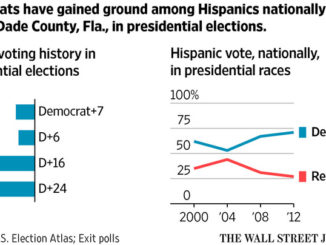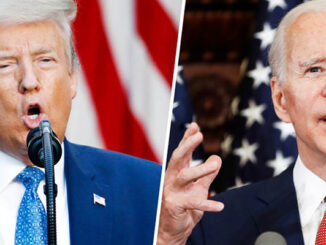
Democrats need to warn Hispanics what a vote for Trump really means.
I have covered the country’s Latino community for nearly two decades and have seen significant shifts in Hispanic voter priorities and allegiances. There are many theories for why these swings are happening. Journalist Paola Ramos argued that some Latinos vote out of “political trauma,” weary of the left’s association with socialism. David French suggested that Democrats’ progressive agenda could be alienating Hispanic voters who hold traditional values. Many activists have pointed point their finger at lackluster community outreach by the Democratic Party. All these accounts have some truth to them. There are plausible reasons for Republican strategists to be optimistic about bringing more Latinos into the party in the future.
Nevertheless, I struggle to fully understand some Hispanic voters’ enduring support for Trump today, given his racist rhetoric and terrifying policy proposals. While Latinos are generally more moderate on immigration policy than the average American, a considerable number appear to favor punitive measures. In a recent poll, 53 percent of Hispanic voters said they would support the mass deportation of undocumented immigrants, with 50 percent supporting “large detention centers” for those awaiting possible deportation.
One possibility is that the sheer scale of Trump’s proposed immigration policies is making it hard for people to comprehend the human toll.
Trump’s plan to carry out the largest mass deportation campaign in history are no secret — he refers to them frequently in stump speeches. And the outlines of the plan have been amply documented. Trump is aiming to expel at least 15 million undocumented people from the country. (For a sense of scale, compare this figure to the Obama-era Deferred Action for Childhood Arrivals program, which currently protects more than 500,000 “dreamers.”) These vulnerable millions know no other country but this one. If they are forced to leave everything they have behind overnight, their anguish will make the hideous stories of family separations we heard during the first Trump term pale in comparison.
If carried out, Trump’s planned mass deportation would leave nearly 4½ million children in the United States partially or wholly orphaned. The impact of mass deportation on families would be profound. In Florida, nearly 2 million U.S. citizens or non-undocumented residents live in households with at least one undocumented person; in California, it’s more than 4 million. The sudden disappearance of a parent or a main provider will be devastating: It is estimated that more than 900,000 households with at least one child who is a U.S. citizen will fall below the poverty line if the undocumented breadwinners in these families are deported.
Some Latino voters who are considering Trump seem skeptical of the plan’s actual implementation. “I don’t think he is going to start rounding up Mexicans or Venezuelans,” said Anthony Gavic, a potential Trump voter of Mexican descent in a recent interview with the New York Times.
Other Trump voters appear willing to disregard the human costs of an unforgiving immigration policy. “Terrible for those who came after. Congratulations to me,” Santiago Ferran Barnet, a Cuban immigrant, told the Miami Herald during a Trump rally. Other Trump supporters share this moral meanness and lack of empathy. “Putting them in a camp and deporting them? It sounds great to me,” said Anais Refujol, a Trump voter from California, when asked about detention centers for recent Venezuelan immigrants. Ironically, Refujol herself earned citizenship after arriving as a refugee in 2004 — from Venezuela.
Can voters like these be reached? Perhaps not, but Democrats must try.
Harris appears to be starting to communicate that she, too, will be tough on the border. That might be politically expedient, but it must not be the whole play. As Democrats present their argument to Latino voters at the party’s convention in Chicago, it will be morally incumbent on them to spell out the repercussions of what former Trump White House aide Stephen Miller called, with his usual callousness, a “spectacular migration crackdown.”
Making the case against a cruel immigration policy might or might not move the needle. But it must nevertheless be made. Potential Hispanic Trump supporters need to fully understand what they are voting for.
.



